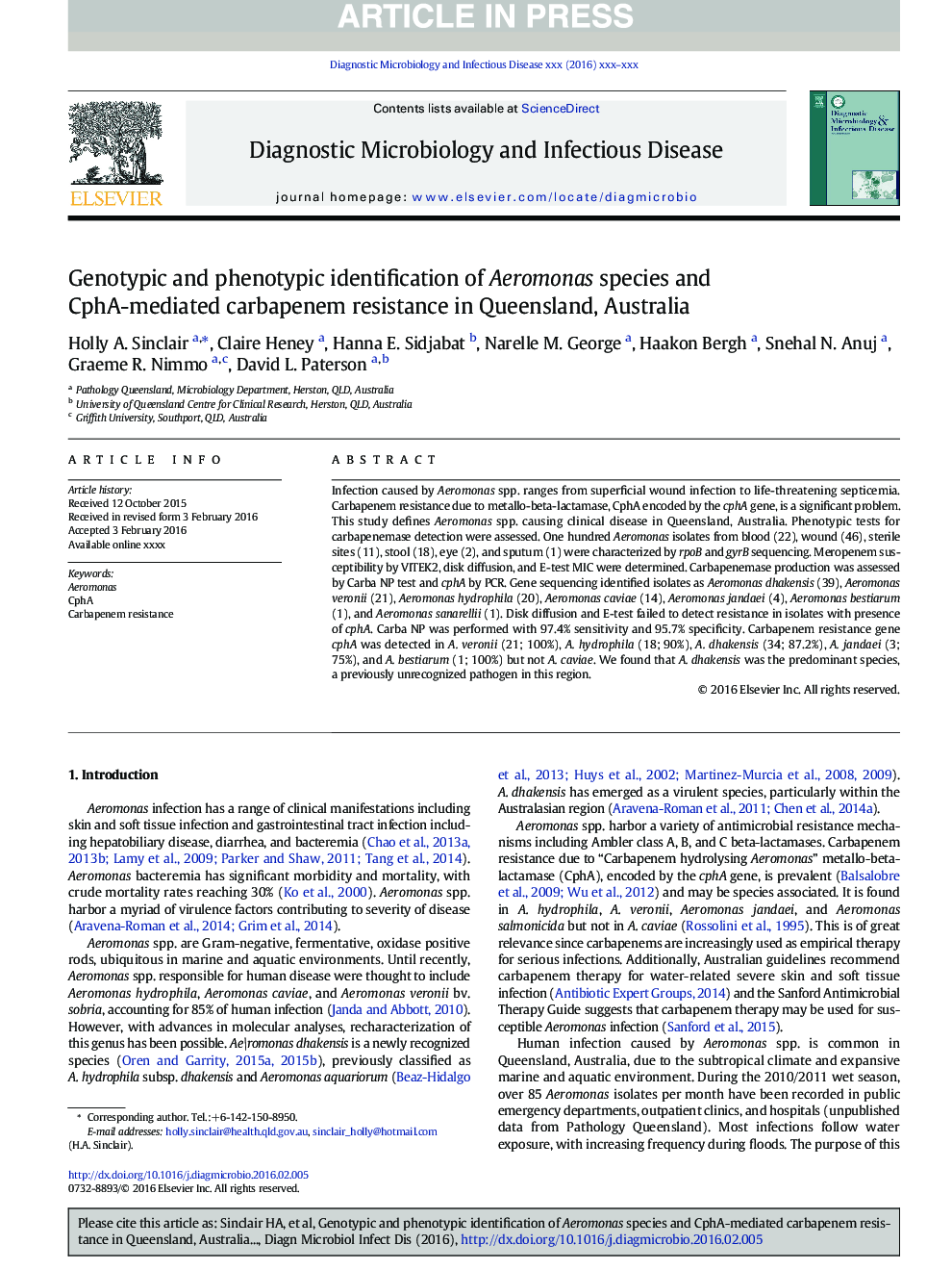| Article ID | Journal | Published Year | Pages | File Type |
|---|---|---|---|---|
| 10168263 | Diagnostic Microbiology and Infectious Disease | 2016 | 4 Pages |
Abstract
Infection caused by Aeromonas spp. ranges from superficial wound infection to life-threatening septicemia. Carbapenem resistance due to metallo-beta-lactamase, CphA encoded by the cphA gene, is a significant problem. This study defines Aeromonas spp. causing clinical disease in Queensland, Australia. Phenotypic tests for carbapenemase detection were assessed. One hundred Aeromonas isolates from blood (22), wound (46), sterile sites (11), stool (18), eye (2), and sputum (1) were characterized by rpoB and gyrB sequencing. Meropenem susceptibility by VITEK2, disk diffusion, and E-test MIC were determined. Carbapenemase production was assessed by Carba NP test and cphA by PCR. Gene sequencing identified isolates as Aeromonas dhakensis (39), Aeromonas veronii (21), Aeromonas hydrophila (20), Aeromonas caviae (14), Aeromonas jandaei (4), Aeromonas bestiarum (1), and Aeromonas sanarellii (1). Disk diffusion and E-test failed to detect resistance in isolates with presence of cphA. Carba NP was performed with 97.4% sensitivity and 95.7% specificity. Carbapenem resistance gene cphA was detected in A. veronii (21; 100%), A. hydrophila (18; 90%), A. dhakensis (34; 87.2%), A. jandaei (3; 75%), and A. bestiarum (1; 100%) but not A. caviae. We found that A. dhakensis was the predominant species, a previously unrecognized pathogen in this region.
Keywords
Related Topics
Life Sciences
Immunology and Microbiology
Applied Microbiology and Biotechnology
Authors
Holly A. Sinclair, Claire Heney, Hanna E. Sidjabat, Narelle M. George, Haakon Bergh, Snehal N. Anuj, Graeme R. Nimmo, David L. Paterson,
